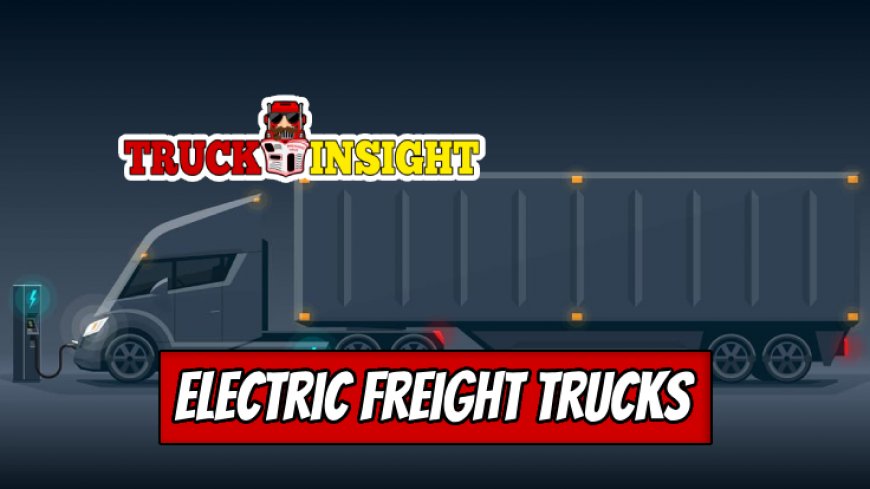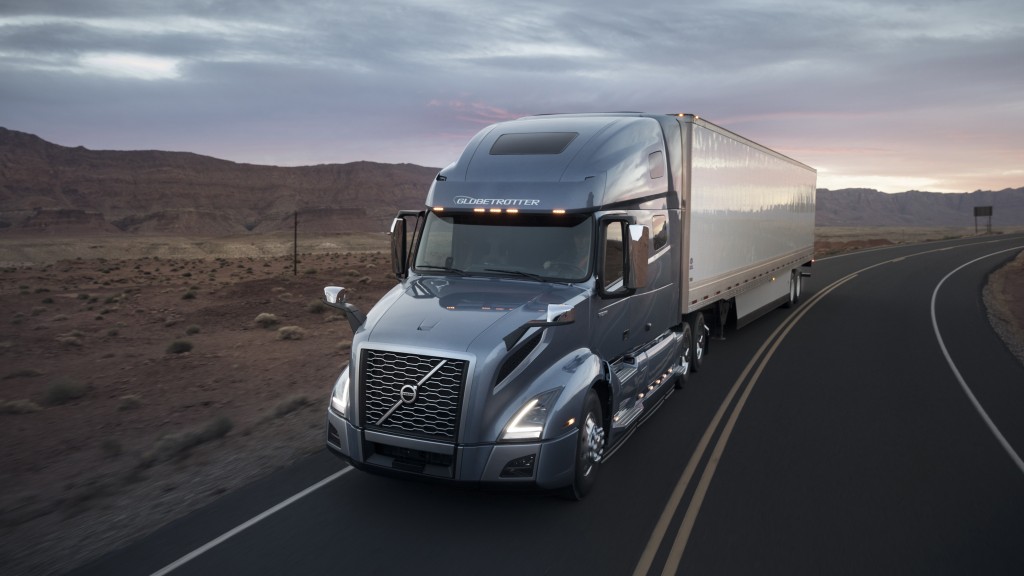Understanding the Impact of Electric Freight Trucks
Discover how electric freight trucks are transforming the freight industry and contributing significantly to environmental sustainability.

Electric freight trucks are transforming the logistics industry. This innovation is changing not only the transportation landscape but also the environment. Electric trucks are the newest trend in green freight transport, and the impact they are making on the industry is significant.
Examining the Role of Electric Freight Trucks
Electric freight trucks have no emissions, making them a popular choice for companies striving for sustainable operations. Let's explore in depth the revolution this green alternative is seeding within the freight industry.
Table of Contents
- Benefits of Electric Freight Trucks
- Electric Freight Trucks vs. Diesel Trucks
- Sustainability and Environment
- Challenges in Adopting Electric Freight Trucks
- Case Studies of Companies Using Electric Freight Trucks
- Future of Electric Freight Trucks
Benefits of Electric Freight Trucks
![]()
Electric trucks come with numerous advantages over their traditional counterparts, making them an increasingly attractive choice for haulage and logistics companies. Below, we dive into some of the main benefits:
- Reduced Emission: Since electric trucks don't burn fossil fuels, they produce zero tailpipe emissions. This contributes to cleaner air, particularly in urban areas where air quality can be a significant issue.
- Low Operating Costs: Though the upfront cost is higher, electric trucks have lower operating costs over their lifespan. These costs include fuel, maintenance, and repairs.
- Noise Reduction: Electric motors are generally quieter than typical diesel engines. Many cities and urban centers enforce strict noise pollution rules, making electric freight trucks a beneficial solution.
Electric Freight Trucks vs. Diesel Trucks

When you compare electric freight trucks with diesel ones, the differences become clear. Here's a quick overview to better illustrate the contrast.
Fuel Efficiency
Electric trucks are highly energy efficient. According to the U.S. Department of Energy, electric vehicles can convert over 77% of the electrical energy from the grid to power at the wheels, while conventional gasoline vehicles only convert about 12%–30% of the energy stored in gasoline to power at the wheels.
Performance
Electric freight trucks offer consistent performance across numerous speed ranges. Unlike diesel trucks, the power doesn't drop off at higher speeds. Also, thanks to their onboard battery system, they provide high torque even at low speeds, enhancing their performance.
Sustainability and the Environment
The environmental benefit is among the key selling points of electric freight trucks. With the growing emphasis on global warming and the pressing need to reduce carbon emissions, the role of electric trucks is becoming critical.
According to a report by the International Council on Clean Transportation, the use of electric trucks can reduce greenhouse gas emissions by around 60% compared to diesel trucks. The same report also highlights that if chargers are used to refill truck batteries overnight when energy demand is low, the environmental benefits could even be amplified.
Furthermore, electric trucks promote resource efficiency. Instead of relying on fast-depleting fossil fuels, they utilize electricity, a form of energy that can be generated using renewable sources. This shift towards electric trucks underlines the importance of a sustainable transport industry in achieving global carbon-neutral goals.
Challenges in Adopting Electric Freight Trucks

Despite the many advantages of electric freight trucks, their adoption is not without hurdles. The industry still grapples with a few key issues.
- High Initial Costs: The upfront cost of electric freight trucks is substantially higher than that of diesel vehicles. Even though costs are likely to decline in the future as the technology matures, it remains a significant barrier to widespread adoption.
- Infrastructure Limitations: Adequate charging infrastructure is a critical need for the success of electric trucks and it needs to catch up. Range anxiety, commonly associated with electric vehicles (EVs), is particularly relevant for long-haul freight transport.
- Battery Technology: Battery cost, capacity, weight, and charging times remain challenges in the realm of electric trucking. Advances in battery technology, however, are expected to mitigate these issues over time.
Case Studies of Companies Using Electric Freight Trucks
A growing number of major companies are exploring electric freight trucks as a new way to improve their logistics while reducing environmental impact. Here are a couple of notable examples.
Tesla Semi
Tesla, the renowned electric car manufacturer, has stepped into the commercial vehicles space with the Tesla Semi. Unveiled in 2017, the all-electric semi-truck claims to offer energy savings of over $200,000 in fuel over 1 million miles, according to Tesla. Major companies like UPS, FedEx, and Walmart have already placed orders for this futuristic vehicle.
DHL’s StreetScooter
German logistics giant DHL has been developing its line of electric delivery vans called "StreetScooter" since 2014. These vehicles are squarely aimed at urban deliveries, highlighting how electric freight trucks can be used effectively for last-mile delivery.
The Future of Electric Freight Trucks

The future of the freight industry is increasingly looking electric. According to a Bloomberg NEF report, by 2040, over one-third of all trucks on the road could be electric.
Further advancements are expected in the development of electric battery systems, fast-charging infrastructure, and policies pushing for green energy versus fossil fuel usage. Companies will need to adapt to this transformation and prepare for a future where electric trucks could become the norm.
In conclusion, electric freight trucks are undeniably shaping the future of the freight industry. They're a viable option for firms committed to environmental sustainability, and though they are faced with challenges, technological progress and policy support are likely to overcome these obstacles, steadily driving the transportation industry towards a more sustainable future.
What's Your Reaction?





























































